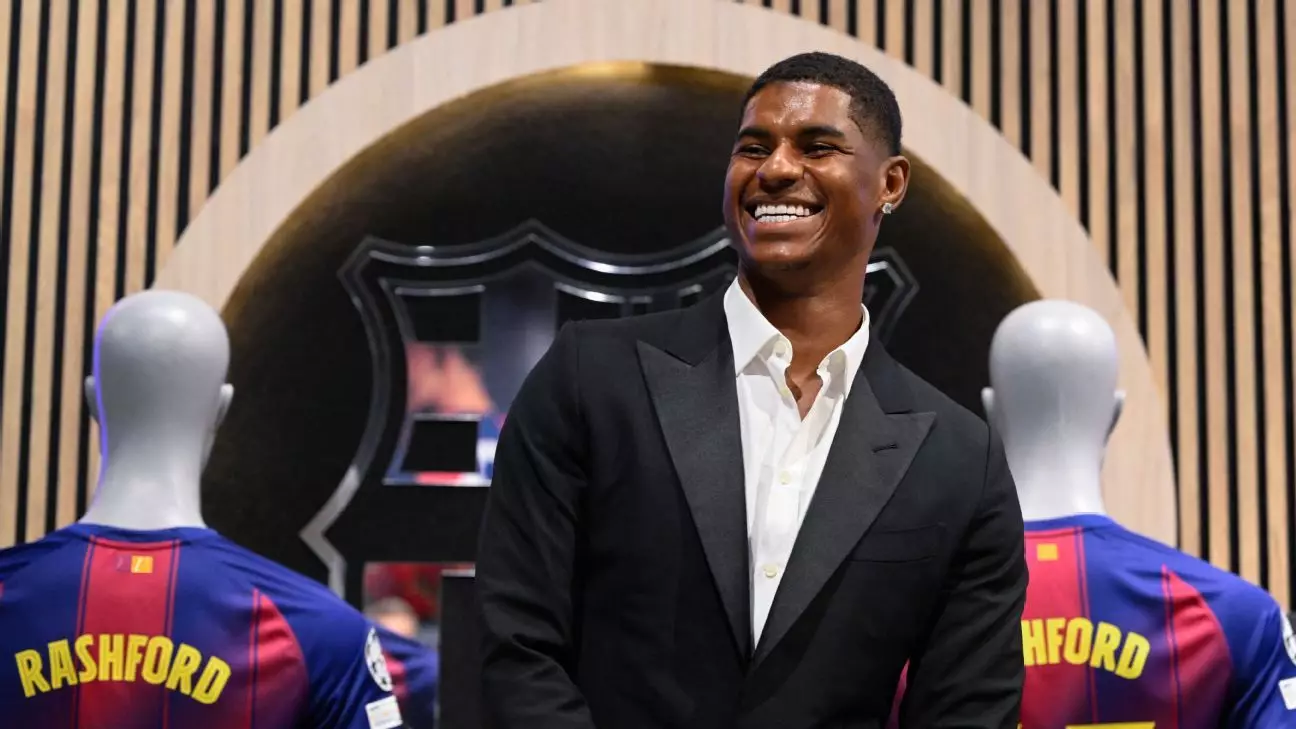Marcus Rashford’s recent decision to join Barcelona signifies more than just a transfer; it symbolizes a pressing shift in how modern athletes navigate their careers. While he remains respectful and appreciative of his roots at Manchester United, his openness to a new challenge underlines a broader trend in the sport: players increasingly value growth, adaptability, and personal development over unwavering loyalty. Rashford’s statement reveals a mature understanding that a footballer’s journey is complex, often fluctuating between emotional ties and pragmatic choices. His positive attitude not only defies traditional notions of loyalty but also sets a powerful example for burgeoning talents considering their own career paths.
From Club Legend to Global Contender
Having been a pivotal figure at Manchester United for nearly a decade, Rashford’s departure marks the end of an era. His 426 appearances and 138 goals place him among United’s all-time greats, a testament to his talent and dedication. Yet, despite his impressive contributions, a change in coaching strategies and club circumstances ultimately limited his role, prompting the move to Barcelona. It is a reminder that even the most loyal players must reassess their futures when circumstances shift—no player is guaranteed a permanent spot, and adaptability is crucial for longevity in the sport. Rashford’s acceptance of this reality highlights his resilience and commitment to personal growth.
Embracing New Challenges with Focus and Positivity
Rashford’s comments demonstrate a commendable level of maturity and self-awareness. He recognizes that football, like life, is unpredictable and that setbacks are part of the journey. His emphasis on improvement and winning trophies signals a future-focused mindset. Rather than dwelling on past loyalties or grievances, he approaches this move as an opportunity to evolve and prove himself anew. Wearing the No. 14 jersey at Barcelona, Rashford is not just seeking a fresh start; he’s actively choosing to redefine his identity as a player and individual. His attitude challenges the often romanticized idea that loyalty to a club should never be questioned, advocating instead for a pragmatic, self-empowered approach to career development.
Rashford’s transition exemplifies the modern footballer’s pursuit of continual growth and adaptability. His optimistic outlook and humility serve as a reminder that success isn’t solely measured by club loyalty or fan admiration but also by personal resilience and willingness to embrace change. At 27, Rashford is entering a new chapter that could define the next phase of his career, not just as a Manchester United legend in the making but as a global star unafraid to forge new paths. His journey underscores a vital truth: evolving with the times can be the real mark of greatness.

Leave a Reply